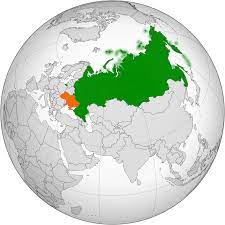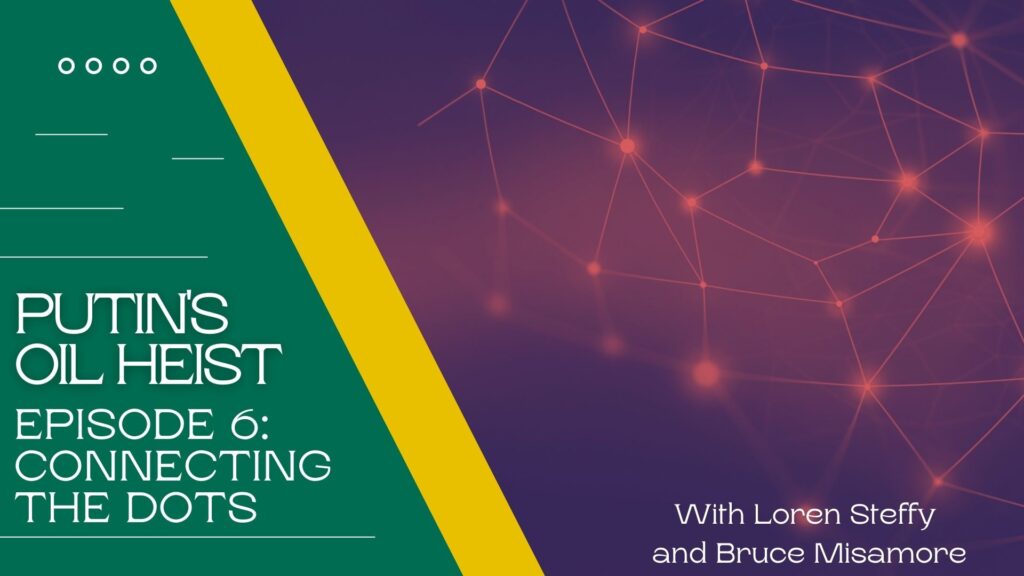I recently had the opportunity to visit with Dr. Ian Oxnevad, Director of Geopolitical Risk Intelligence at Infortal Worldwide. Global Risk Review, a podcast series that Infortal Worldwide sponsors was the reason for this visit. Dr. Oxnevad is a seasoned expert in geopolitical risk intelligence, with a Ph.D. in political science and a master’s degree in National Security Studies.
Over this five-part blog series, we will look at the risk profile for US Companies doing business in the following geographic regions: the Middle East, Latin America, Russia and Ukraine, Africa, and the Asia Pacific region. Over this five-part blog post series, we will review Dr. Oxnevad’s views in each one of these regions. Part 3 reviews the business opportunities and risks in Russia and the challenges and opportunities in rebuilding Ukraine.
Dr. Oxnevad deeply understands the issues in Russia and Ukraine. His belief that the upcoming rebuilding of Ukraine will spark a surge of interest from significant US corporations, the EU, and China, potentially resulting in increased corruption and geopolitical risks, shapes his perspective on the global implications and geopolitical risks. Oxnevad emphasizes the need for ongoing due diligence and monitoring by Western companies to navigate potential challenges and uncertainties, such as changes in laws and competition from different countries. He also acknowledges the significant risk of corruption in Ukraine, especially during the rebuilding process, and believes it may take time for EU institutions to mitigate this risk.
The war between Russia and Ukraine has had far-reaching consequences, not only for Europe but also for other parts of the world. Indeed, it has changed business across the globe forever.
One of the key factors to consider is the impact on global food supplies. Russia and Ukraine are major food and grain suppliers, and the war and sanctions have disrupted their production. This has put food supplies at risk, increasing food costs and inflationary pressures worldwide. Countries in Africa and the Middle East, in particular, heavily rely on these food supplies, and the uncertainty surrounding Ukraine’s ability to meet these demands raises concerns.
The rebuilding of Ukraine presents significant opportunities for major corporations from the United States, the European Union, China, and other countries. However, it also raises concerns about corruption and geopolitical risks. Ukraine has been traditionally viewed as a high-risk country for corruption, and the war has only exacerbated this issue. The chaos and emergency in the country create a greater incentive for corruption to exist. President Zelensky’s ability to address these concerns remains to be determined, and it is unlikely that corruption will disappear even if the war were to end abruptly.
From a geopolitical standpoint, the war between Russia and Ukraine has become a proxy war between Russia and the West and China and the West. This further complicates the situation and introduces additional risks. The resolution of the war and the lifting of sanctions will depend on various factors, including Russia’s political landscape and the leadership of President Putin. If Putin remains in power, the sanctions will likely stay in place. However, if there is a change in leadership, lifting sanctions could be a possibility, albeit with careful consideration of Russia’s economic and political landscape.
The rush to capitalize on Ukraine’s rebuilding presents both opportunities and risks. Many countries and corporations will be vying for a stake in Ukraine, increasing the incentives for corruption and other geopolitical risks. Competitors will be aware of the presence of different countries, further complicating the situation. It is crucial for American companies and others to carefully assess the risks associated with corruption in Ukraine and conduct thorough due diligence before engaging in business opportunities.
The international community, including the European Union, NATO, and the United Nations, may play a role in assisting Ukraine in its rebuilding efforts. Establishing the rule of law, policies, and procedures will ensure a successful reconstruction. However, the timing of international involvement is crucial. Rebuilding efforts must occur before existing EU institutions move in to address corruption, as this will help mitigate the associated risks.
In conclusion, rebuilding Ukraine has significant global implications and geopolitical risks. The disruption of food supplies, the rush to capitalize on opportunities, and the challenges associated with corruption must be carefully considered. The resolution of the war and the lifting of sanctions depend on various factors, including Russia’s political landscape. International assistance in rebuilding efforts, particularly in establishing the rule of law, will be crucial. However, it is essential to conduct thorough due diligence and assess the risks before engaging in business opportunities in Ukraine.
Please join us tomorrow when we explore geopolitical risks and business opportunities in Europe.
You can check Dr. Oxnevad in the full five-part Riskology podcast series here.







